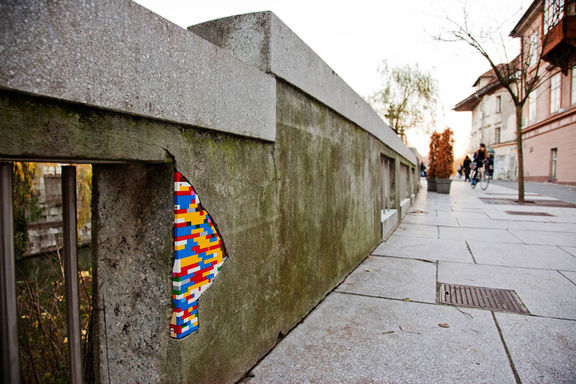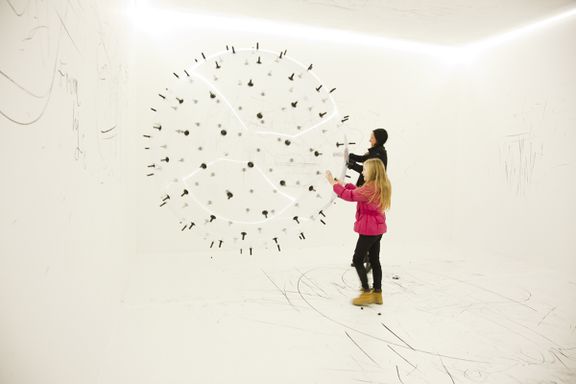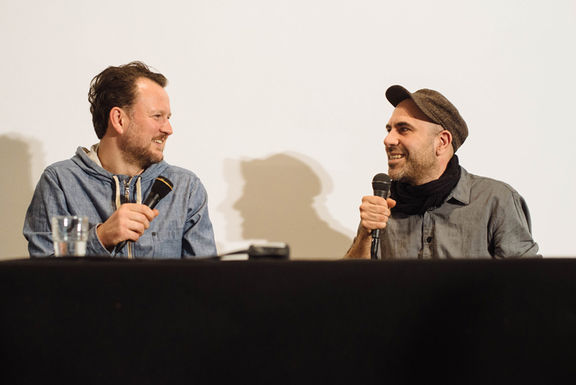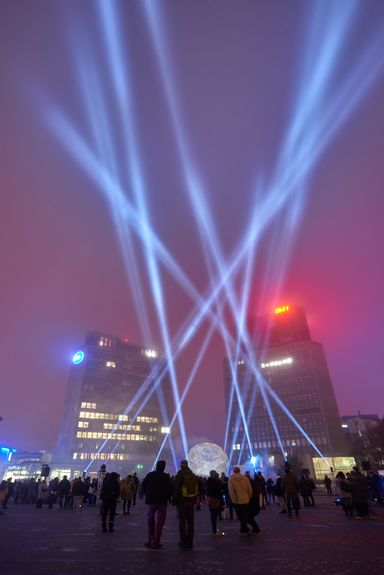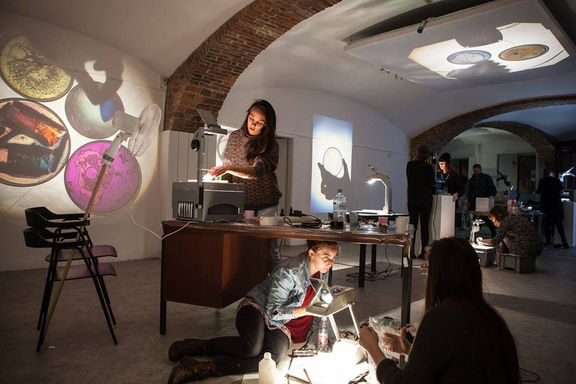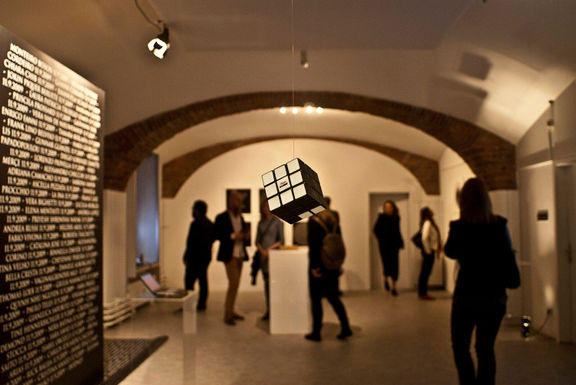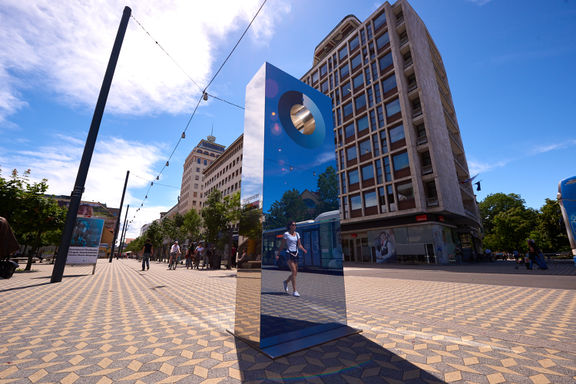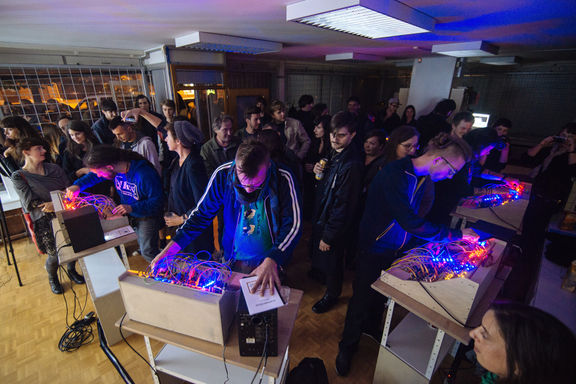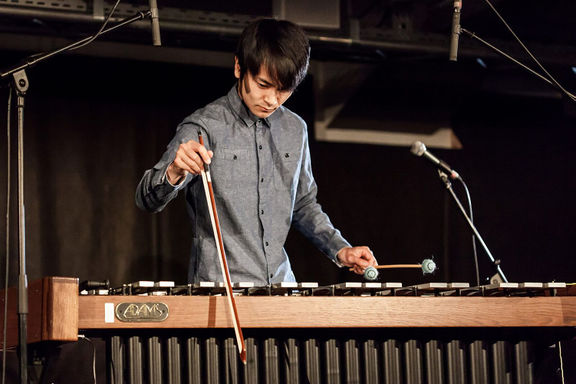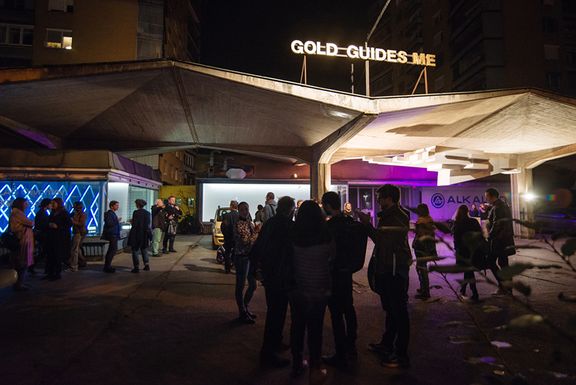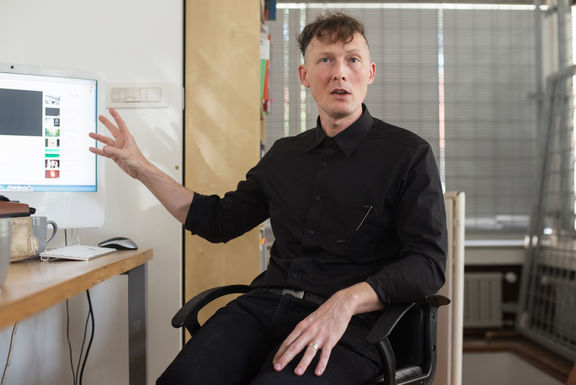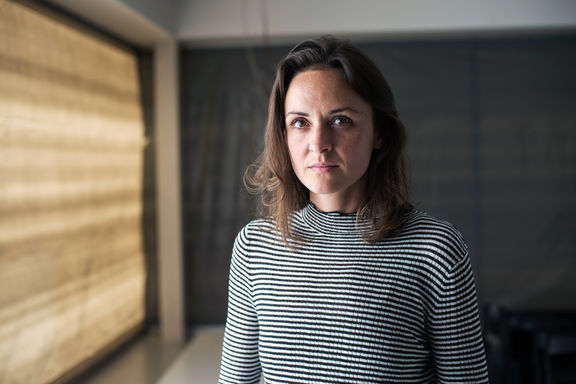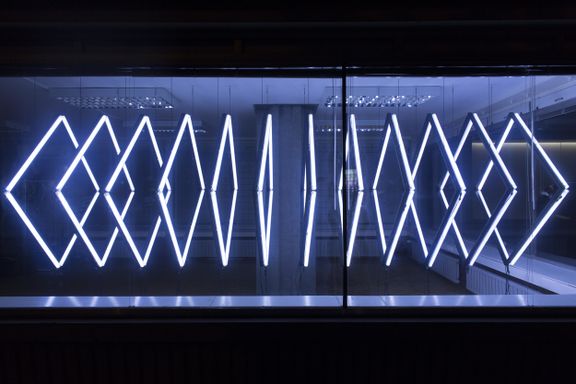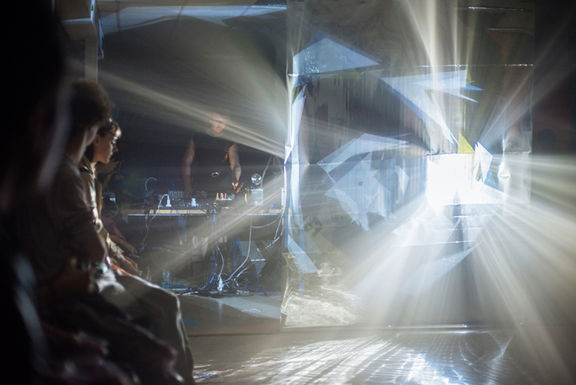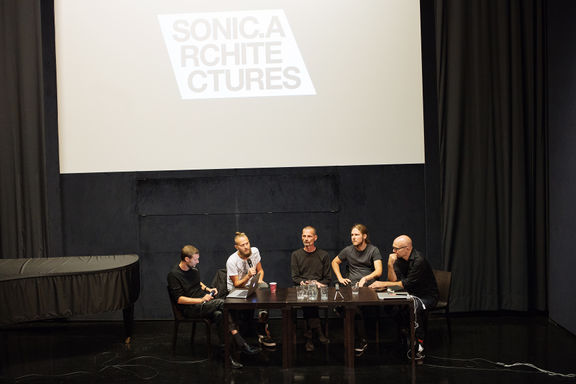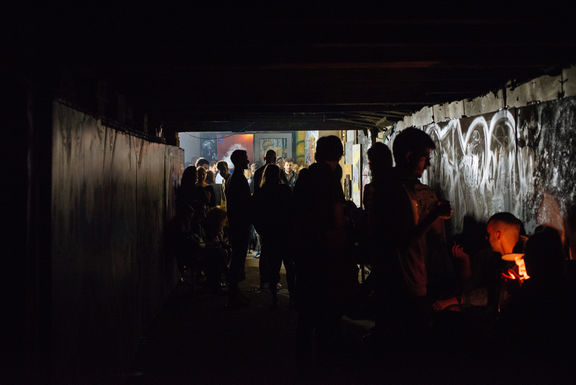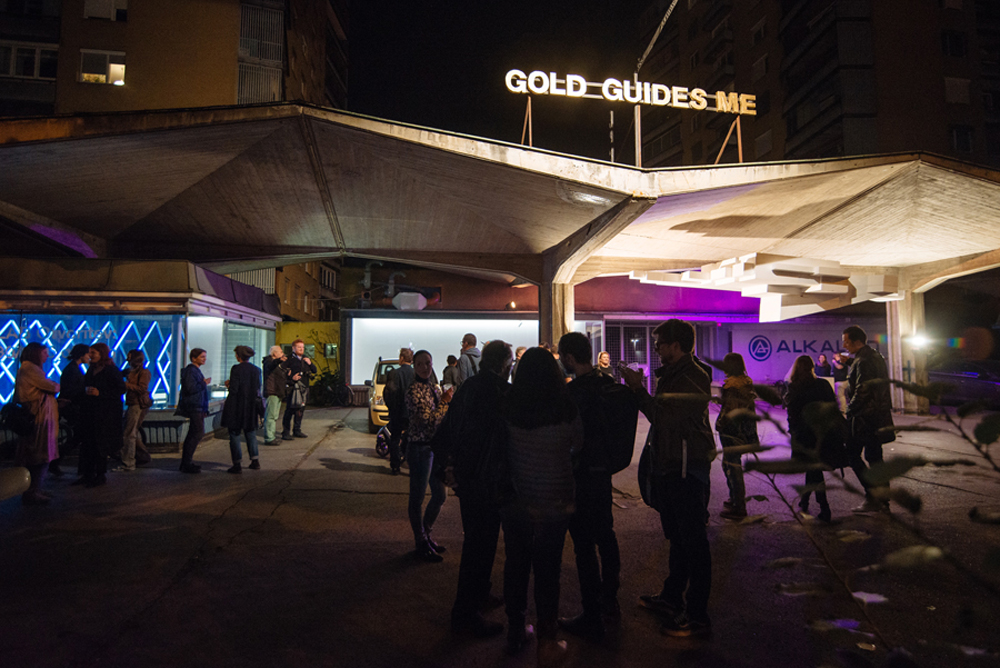MoTA Museum of Transitory Art
-
23 May 2024
KRAK Centar, Sonica International Festival of Transitory Art and MoTA Museum of Transitory Art present a performance by multi-instrumentalist Iztok Koren, an artist of the SHAPE+ platform. Co-founded by the European Union.
at the SONICA Festival
-
to
13 Apr 2023
15 Apr 2023
Opium Clippers, a performance by Neja Tomšič, coproduced by Glej Theatre and MoTA Museum of Transitory Art. Related to the Embassy of the Republic of Slovenia Madrid
at the Festival Sismògraf
-
28 Nov 2019
SONICA X IKLECTIK featuring a concert by Širom (Glitterbeat Records) and an exhibition by MoTA Museum of Transitory Art (Uršula Berlot, Nonument Group, supported by the Embassy of the Republic of Slovenia London,
at the IKLECTIK Festival
-
to
18 Oct 2018
21 Oct 2018
United Kingdom London UN8 msdm gallery
The visual essay and performance Tea for 5 - Opium Clippers by Neja Tomšič (MoTA Museum of Transitory Art), ceramics by Anja Slapničar, supported by Glej Theatre,
-
13 Oct 2018
The visual essay and performance Tea for 5 - Opium Clippers by Neja Tomšič (MoTA Museum of Transitory Art), ceramics by Anja Slapničar, and the poetry reading by Gašper Torkar, supported by Glej Theatre,
-
to
6 Oct 2018
7 Oct 2018
The visual essay and performance Tea for 5 - Opium Clippers by Neja Tomšič (MoTA Museum of Transitory Art), ceramics by Anja Slapničar, supported by Glej Theatre, in the frame of the exhibition Postcolonial Frames/Ex Oriente
-
to
13 Sep 2018
15 Sep 2018
Colours in Motion, an interactive light and sound installation by Marko Batista (Strip Core), and Waves, an audiovisual installation by Martin Bricelj Baraga (MoTA Museum of Transitory Art),
at the Visualia Festival of Light
-
to
24 Aug 2018
12 Sep 2018
Martin Bricelj Baraga (MoTA Museum of Transitory Art) and Simon Jacquemin (collective Bellastock) curate a series of interactive artworks on the banks of the Esentai River, featuring Vodoskop by BridA, an interactive bridge capturing and visualising live water data; Aryk-o-phone, a river instrument played by the river; and Lumitronome, a solar powered kinetic light installation, supported by the Embassy of the Republic of Slovenia Moscow,
-
29 Jun 2018
The presentation of the project NONUMENT 01:: McKeldin Fountain by Neja Tomšič and Martin Bricelj Baraga (MoTA Museum of Transitory Art) collaborating with Lisa Moren and Jaimes Mayhew, in the Other Realities section of the International Symposium on Electronic Art (ISEA)
-
19 May 2018
The official launch of the NONUMENT 01:: McKeldin Fountain app by Neja Tomšič and Martin Bricelj Baraga (MoTA Museum of Transitory Art) collaborating with Baltimore artists, and the Nonument 01 exhibition
-
to
28 Oct 2017
29 Oct 2017
Modular Relations Conference and Sonica Berlin AV Showcase co-organised by the MoTA Museum of Transitory Art (Sonica International Festival of Transitory Art) within the Artecitya EU project
-
to
22 May 2017
23 May 2017
The visual essay and performance Tea for 5 - Opium Clippers by Neja Tomšič (MoTA Museum of Transitory Art), ceramics by Anja Slapničar;
at the Sofia Underground International Performance Art Festival
-
to
16 Mar 2017
18 Mar 2017
The visual essay and performance Tea for 5 - Opium Clippers by Neja Tomšič (MoTA Museum of Transitory Art), ceramics by Anja Slapničar; music appearance by Katja Šulc; Iva Tratnik, Adrijan Praznik, Ivana Bajec, Maks Bricelj, Tia Avsec at a group exhibition;
at the Sarajevo Winter Festival
-
16 Dec 2016
Sonica International Festival of Transitory Art presented its program, including also the NEUNUNDNEUNZIG installation by Martin Bricelj Baraga and Olaf Bender, produced by MoTA Museum of Transitory Art, and Random Logic
-
to
20 Apr 2016
24 Apr 2016
MoTA Museum of Transitory Art presents works by Arjan Pregl, Uršula Berlot, Adam Basanta, Jan Vormann, Nik Nowak, and Karina Smigla-Bobinski at Supermarket, Stockholm Independent Art Fair
-
to
27 Oct 2015
29 Oct 2015
NEUNUNDNEUNZIG (99), an installation also by Martin Bricelj Baraga (MoTA Museum of Transitory Art)
at the Biennial Némo Paris
-
4 Oct 2015
Nonument01 programme by Neja Tomšič and Martin Bricelj Baraga (MoTA Museum of Transitory Art) collaborating with Baltimore artists, McKeldin Fountain workshop and parade at the Transmodern Festival, in public space and
-
to
24 Sep 2015
27 Sep 2015
Sonica International Festival of Transitory Art (MoTA Museum of Transitory Art) presents the Sound Investments exhibition with Irena Tomažin’s Faces of Voices and Spatial’s Dental Metal sound installation by Martin Bricelj Baraga; workshops and concerts with Miha Ciglar and Irena Tomažin at the High Zero Festival
-
2 May 2015
-
to
30 Apr 2015
2 May 2015
NEUNUNDNEUNZIG (99), an installation also by Martin Bricelj Baraga, and an audio-visual preformance by Random Logic and Oknai (MoTA Museum of Transitory Art, Sonica International Festival of Transitory Art) at the ICAS Festival
-
to
9 Nov 2013
16 Nov 2013
The project Dark Star 3.0 by Martin Bricelj Baraga (MoTA Museum of Transitory Art) as the winner of the festival Glow Next
-
to
16 Mar 2012
27 May 2012
Robovox project byMartin Bricelj Baraga, Slavko Glamočanin (MoTA Museum of Transitory Art) and Chris Sugrue (Spain-Slovenia, Ljudmila - Ljubljana Digital Media Lab) project, part of the Robots & Avatars EU funded project led by by KIBLA Multimedia Centre,
-
to
9 Feb 2012
12 Feb 2012
MoTA Museum of Transitory Art and Kinetica Museum, DarkStar preview at the Kinetica Art Fair 2012, Ambika P3, 35 Marylebone Road, London
Venue
MoTA styles itself as a museum without a permanent collection or a fixed space, but as of 2013 it does run its own venue. First there was the now defunct MoTA Point, which housed a dense programme of concerts and exhibitions and was used as an occasional working space for resident artists and workshops. It got closed in spring 2016, yet a new location was established in the Šiška neighbourhood soon after, called the MoTA LAB.
Most of the bigger MoTA's productions are taking place at the Kino Šiška Centre for Urban Culture.
Music, sound art and audio-visual productions
Since its inception MoTA has been running a diverse programme of concerts, focusing on contemporary electronica and improvised music. As a part of the Sonica Series, the Spring Festival and several of its more sporadic projects it booked the likes of Fennesz, Senking, Blixa Bargeld, William Basinski, Teho Teardo, Keith Rowe, Plaid, Clark, and many others. In a somewhat different vein the Sonica Classics series stages artists like the minimalist pioneer Charlemagne Palestine, the idiosyncratic lute player Jozef Van Wissem and the cellist Hildur Guðnadóttir. For a time MoTA was also setting up live cinema events (held primarily at Kinodvor Cinema) called CinemaScapes. Some of the featured artists were Olga Mink and Scanner, The Kilimanjaro Darkjazz Ensemble, Mira Calix, and Byetone.
MoTA's biggest production is the annual Sonica International Festival of Transitory Art. Featuring AV and music performances, art installations and lectures, Sonica presents artists like Tim Hecker, Rashad Becker, Emptyset, Random Logic, and Takami Nakamoto. The festival traditionally utilises different Ljubljana venues like the MoTA Point/LAB, the Slovenian Cinematheque, Tovarna Rog, the Križevniška Church and Klub K4.
Installations and other contemporary art projects
MoTa boasts an extremely varied programme of art projects that frequently, in one way or another, feature sound among their primary components. But a few of the featured artists are Nik Nowak (DE), Jan Vormann (DE), Bram Vreven (NL), Svetlana Maraš (RS), the Greta Rusttt arts collective (DE), Lenka Đorojević and Matej Stupica (who presented the OHO awarded installation Nevromat) and Irena Tomažin (with her audiovisual installation Faces of voices / noise, inspired by the question "What would a portrait of a certain voice look like?"). Many of them were invited to hold lectures, set up workshops and cooperate in the Artist's Talk discussions.
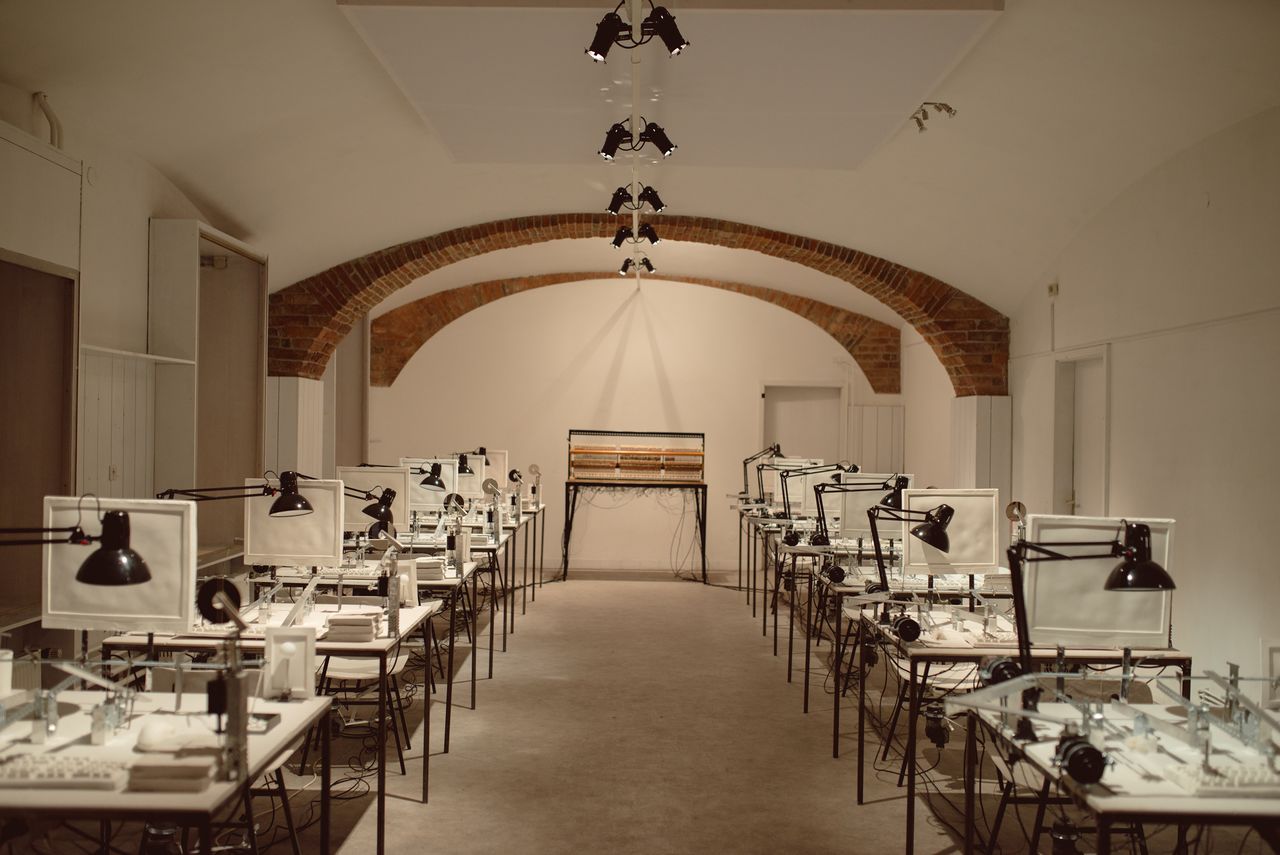 Nevromat [Neur-O-Matic], an installation by Lenka Đorojević & Matej Stupica that got the OHO Group Award in 2015
Nevromat [Neur-O-Matic], an installation by Lenka Đorojević & Matej Stupica that got the OHO Group Award in 2015
Martin Bricelj Baraga art
Martin Bricelj Baraga, the director of the MoTA Museum institute, is a highly prolific author himself. His works are often large-scale installations set in public spaces and unusual architectural contexts.
Among his works are The Cyanometer, a monolith that gathers data of the blueness of the sky and the quality of air and visualises them; the Moonolith, an interactive monument that reflects the Moon and star constellations on its surface; the Darkstar, a large interactive piece on which more than 30 artists, programmers, architects and musicians collaborated; and RoboVox, an 8m high robot set on a public square, to whom one could send telephone messages which he would then read aloud. Baraga collaborated with the renowned musician Olaf Bender (aka Bytone, DE) on a kinetic sound sculpture consisting of a matrix of 99 black balloons and called Neunundneunzig (99). He also collaborates with MoTA's producer Neja Tomšič on Nonuments, a long term project of research and artistic production that deals with monuments, landmarks and other symbolically laden public spaces. In addressing this they were awarded a fellowship at the University of Maryland Baltimore County.
He presented his works at Némo (FR), Kinetica Art Fair (UK), TodaysArt (NL), Glow Next (where Baraga got awarded the first prize in 2013), ICA (UK), Galerie Fernand Leger (FR), Sonar (ES), Columbia University (US), Fact (UK), Centro Cultural Recoleta (AR), Kunsthaus (AT), Kaapelithas (FI), etc. His works were written about in such media outlets like Wired, boingboing.net, Pecha Kucha, New York Art Magazine and Harper Collins.
Impermanent Museum collection
Over the years MoTA has established its so called Impermanent Museum collection Arte/Facts. Featuring a selection of works by artists that they’ve with since 2007, these are not really works as such rather than parts or residues of an artistic process. Some of the artists included are Arjan Pregl, Jan Vormann, Karina Smigla-Bobinski, Adam Basanta, Uršula Berlot, Zimoun, Nik Nowak and Stephen Cornford. MoTA presents this collection at art fairs, among them the Supermarket Art Fair in Stockholm in 2015.
MoTA artist agency
MoTA has a longer history of representing artists abroad, starting with the director Martin Bricelj Baraga himself. Its presence – via the local artists Irena Tomažin, Miha Ciglar, and Neja Tomšič – at the High Zero and Transmodern festivals and the Current gallery in Baltimore (US) also comes to mind.
Yet the year 2015 marks MoTA's semi-official entry into the art world as an agency. Its profile is accordingly broad and is featuring audiovisual works by the Serbian duo WoO and Incredible Bob, large public scale installations by Baraga and Nik Nowak, the London based club act Spatial, and a selection of sound based gallery works – Faces of Voices.Noise by the vocalist Irena Tomažin.
The Artists's Talk project
In 2010, MoTA launched the project Artist Talk, an online portal for publishing, disseminating and archiving high quality video recordings of interviews and lectures given by artists, curators, theorists and others working in the fields of art, activism and theory.
This initiative, still an on-going series of live events, is a product of three contemporary art and new media centres from Eastern and central Europe (MoTA Ljubljana, CIANT Prague and WRO Wroclaw). It is based on the idea of free distribution of ideas and knowledge. A partial result of the interviews conducted as a part of Artist's Talk is the book Outerviews, first presented at the 15th WRO Media Art Biennale in Wroclow.
International partnerships
MoTA is (or has been) involved in various international networks and partnerships. Among them is T.R.I.B.E. – Transitory Research Initiative of the Balkans and Eastern Europe, which started as a residency network in 2012 and connected Ljubljana, Prague, Istanbul and Nicosia. It hosted more than 15 artists and researchers, organised two symposiums and resulted in a publication Exercises in transitory art.
Another network MoTA got involved in is called Artecitya brings together artists, architects, town planners and citizens for, as they say, "envisioning the city of tomorrow” with the aim of improving the quality of life. MoTA was also part of the ALIPI: Advancing Light-driven Public Interactions project, of the ICAS – International Cities of Advanced Sound network, of the GALA Green Art Lab Alliance project, the Swiss Music Day 2015, and numerous others.
Transitory network and the artist-in-residence programme
Since 2008 MoTA has been running an artist-in-residence programme in Ljubljana for media, sound or visual artists, curators and researchers. So far MoTA has hosted and produced the work of more than 15 artists, among them Nedine Kachornnamsong, Jorge Rodriguez Gerada, Felix Thorn, ArtKillArt, and Lexa Walsh. Some of these residencies were done in collaboration with Ljudmila - Ljubljana Digital Media Lab. In 2010, MoTA established the Transitory Network of residencies in Eastern Europe.
The SHAPE network
The SHAPE project is a 3-year initiative that (re)unites 16 European non-profit organisations active within the ICAS – International Cities of Advanced Sound network to create a platform that aims to support, promote, and exchange emergent musicians and interdisciplinary artists with an interest in sound. SHAPE stands for “Sound, Heterogeneous Art and Performance in Europe”.
48 musicians and artists are chosen annually to participate in a mix of live performances, residencies, workshops and talks across member festivals and special events. Under the auspices of SHAPE MoTA, for example, produced its own event featuring performances and art installations at the Apiary Studios in London
Tomaž Brate Reading room and Mediatheque
In 2009, MoTA and Museum and Galleries of Ljubljana have opened a reading room and a mediatheque in the Jakopič Gallery, which consists of a vast collection of books belonging to Tomaž Brate (1963–2008) as well as the MoTA book collection. The reading room serves also as the MoTA info point with information on resident artists, current, past and future projects, and archives.
Jakopič Gallery serves also as an information point for the MoTA - Museum of Transitory Art activities.
See also
External links
- MoTA – Museum of Transitory Art website
- SONICA Festival website
- CodeEp website
- Artist Talk website
- Martin Bricelj Baraga's website
- Cyanometer project website
- An article on one of Bricelj's projects (in Slovene)
International partnerships and networks websites
- T.R.I.B.E. website
- The Artecitya project
- The Green Art Lab Alliance (GALA) partnership website
- International Cities of Advanced Sound network website
Various MoTA art (co)productions
- The Ghostwriter project website
- CLIMAX, an episodic live cinema research-project website
- The Nonument Group on Facebook
- A presentation of Nonument Group
- The artist Lexa Walsh’s MoTA residency project website
- Artist Talk YouTube Playlist



![Nevromat [Neur-O-Matic], an installation by Lenka Đorojević & Matej Stupica that got the OHO Group Award in 2015](/images/thumb/b/b7/Ljudmila_Art_and_Science_Laboratory_2014_Dorojevic_Stupica_Neur-O-Matic_Photo_Miha_Peterlic_%282%29.jpg/576px-Ljudmila_Art_and_Science_Laboratory_2014_Dorojevic_Stupica_Neur-O-Matic_Photo_Miha_Peterlic_%282%29.jpg)
![Nevromat [Neur-O-Matic], Lenka Đorojević & Matej Stupica, produced by Ljudmila Art and Science Laboratory and Projekt Atol Institute, 2014. An OHO Group Award winner.](/images/thumb/9/99/Ljudmila_Art_and_Science_Laboratory_2014_Dorojevic_Stupica_Neur-O-Matic_Photo_Miha_Peterlic_%283%29.jpg/576px-Ljudmila_Art_and_Science_Laboratory_2014_Dorojevic_Stupica_Neur-O-Matic_Photo_Miha_Peterlic_%283%29.jpg)
![Nevromat [Neur-O-Matic] by Lenka Đorojević & Matej Stupica, produced by Ljudmila Art and Science Laboratory and Projekt Atol Institute, 2014](/images/thumb/0/06/Ljudmila_Art_and_Science_Laboratory_2014_Dorojevic_Stupica_Neur-O-Matic_Photo_Miha_Peterlic.jpg/576px-Ljudmila_Art_and_Science_Laboratory_2014_Dorojevic_Stupica_Neur-O-Matic_Photo_Miha_Peterlic.jpg)
